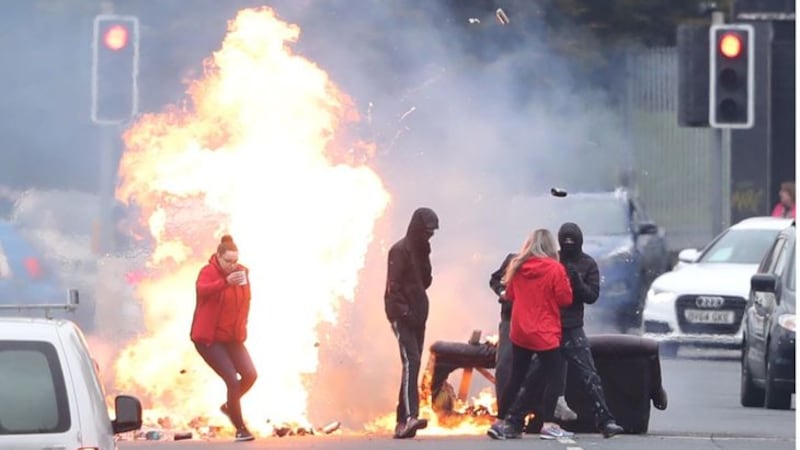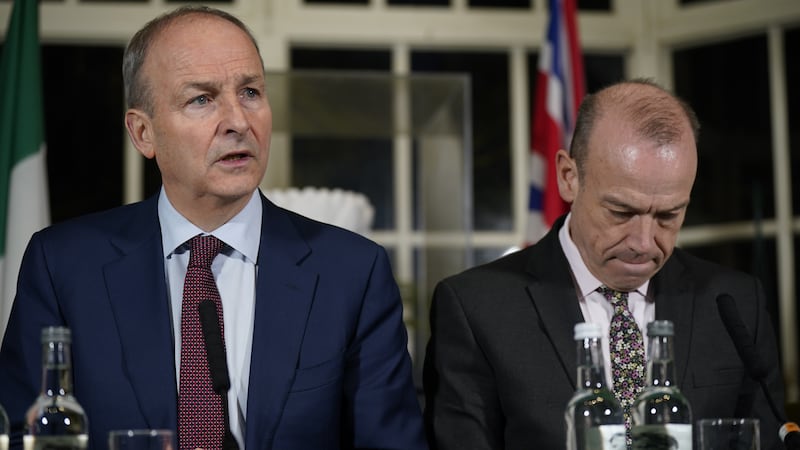The return of loyalist protests on Monday after a brief respite following the death of Prince Philip could not have got off to a worse start.
After weeks of relative silence the Loyalist Communities Council (LCC) paramilitary umbrella group eventually broke cover to stage a two-man demonstration outside Irish government offices in Belfast city centre.
Within minutes chairman David Campbell and former unionist assembly member David McNarry were confronted by Gareth McCord.
His brother Raymond was beaten to death by a UVF gang, believed to include police informers, in 1997.
The image of Mr McCord holding a picture of his murdered brother as he claimed the LCC has no support in loyalist communities dominated the day's coverage of the event during which Mr Campbell and McNarry urged loyalists to engage in peaceful protests.
The LCC is an umbrella group for the Red Hand Commando, UVF and UDA, although it does not have influence with several loyalist factions, including sections of the UDA.
The LCC protest took place just hours before a series of illegal parades were due to take place in loyalist areas across north Down.
Several hundred people later took part in four illegal parades in Newtownards and Bangor, with around 100 people estimated by police to have taken part in each.
Earlier a band once described as "our homeland security" by UDA commander Dee Stitt had promoted the unnotified processions.
The leading loyalist later tweeted pictures from the protests across north down with the hashtag #smashtheprotocol.
The relatively modest turn out at each of the north Down parades may be an indicator that the appetite for street protests within loyalist communities is not at the level organisers would hope for.
Elsewhere, large scale protests failed to materialise, although there was sporadic and violence on the loyalist side of the Lanark Way interface in Belfast.
The trouble was not on the scale of clashes which took place earlier this month.
Those hoping for a full on resumption of the protests will have been left disappointed.
Loyalist sources have indicated that more protests, some involving bands, are planned.
Whether the tactic of holding protest parades as part of the anti-protocol push picks up momentum remains to be seen.
The inevitable attention such gatherings will attract from the PSNI and the potential consequences for those taking part may quell enthusiasm for the strategy in some areas.








